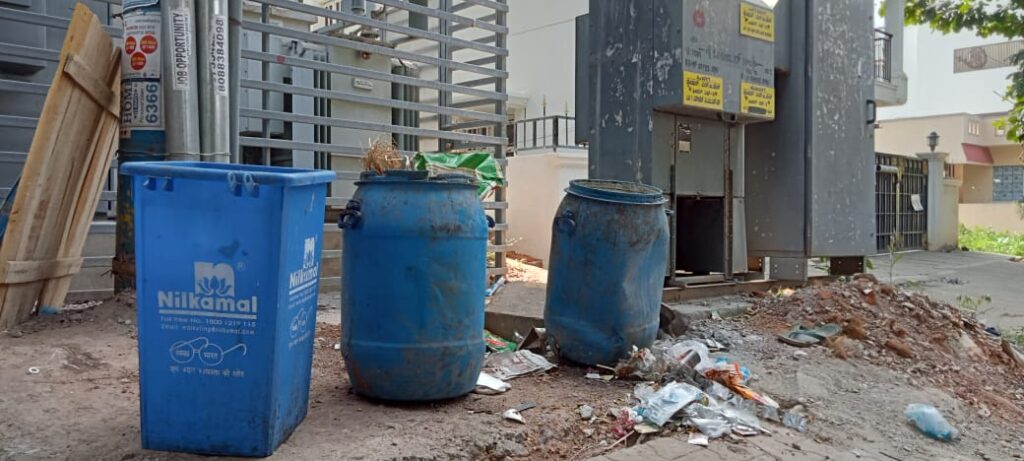In the heart of Bengaluru, as the city bustles with activity, there exists a group of unsung heroes: the Paurakarmikar of Bruhat Bengaluru Mahanagara Palike (BBMP). Often working in the shadows, they play a pivotal role in maintaining the cleanliness of the city. BBMP, which oversees the city’s solid waste management system, is under growing pressure. Concerns about adequate solid waste management arise from the increase in population, intensifying the need for efficient waste disposal.
Currently, the Paurakarmikas of BBMP follow a door-to-door service where people have to be present to dispose of their waste. However, the city of Bengaluru is still being contaminated by waste disposal in public places. The door-to-door system was introduced to reduce the cost of waste segregation and to create a sense of responsibility among citizens.
“I am a working woman, and I leave home by 7:30, so I am unable to dispose of waste regularly. I have to wait for a Saturday or Sunday to dump waste,” says Suguna, a resident of Nagasandra. The residents can’t keep waste outside the building because of stray dogs. The lack of coordination in timing among residents and garbage collectors is one of the major issues.
“The government is investing 1640 crores in solid waste management, but still the city is facing difficulties in solid waste management. Earlier they followed common bin system, but in 2017 BBMP changed the rule to door-to-door service as there is no space to locate the bins,” says Raghavendra H.S, Program Coordinator of B-CLIP (Civic Leadership Incubator Program).

“Our working time starts from 6:30 am to 2 pm, and we cover every corner of the assigned area. However, most residents can’t dispose of waste daily due to their schedules, so they dump both dry waste and wet waste together in a public area,” said Voblesh, a Paurakarmikar worker. The Paurakarmikas have two shifts, one from 6 am to 10 am in the morning and another from 10:30 am to 2 pm. Considering the lack of coordination in timing among residents and garbage collectors, Bangalore Political Action Committee (BPAC) has suggested a change in the timings to one shift in the morning and one in the evening.
Although the government has been carrying out its obligations to maintain a clean environment, the citizens are accountable as well. Both the government and citizens have to work hand in hand to protect the environment from further degradation and for sustainable development.
Feature Image Courtesy: pxfuel.com


Simply want to say your article is as amazing. The clarity in your publish is just spectacular and that i could assume you’re a professional on this subject. Fine with your permission allow me to clutch your RSS feed to keep updated with approaching post. Thanks a million and please carry on the rewarding work.